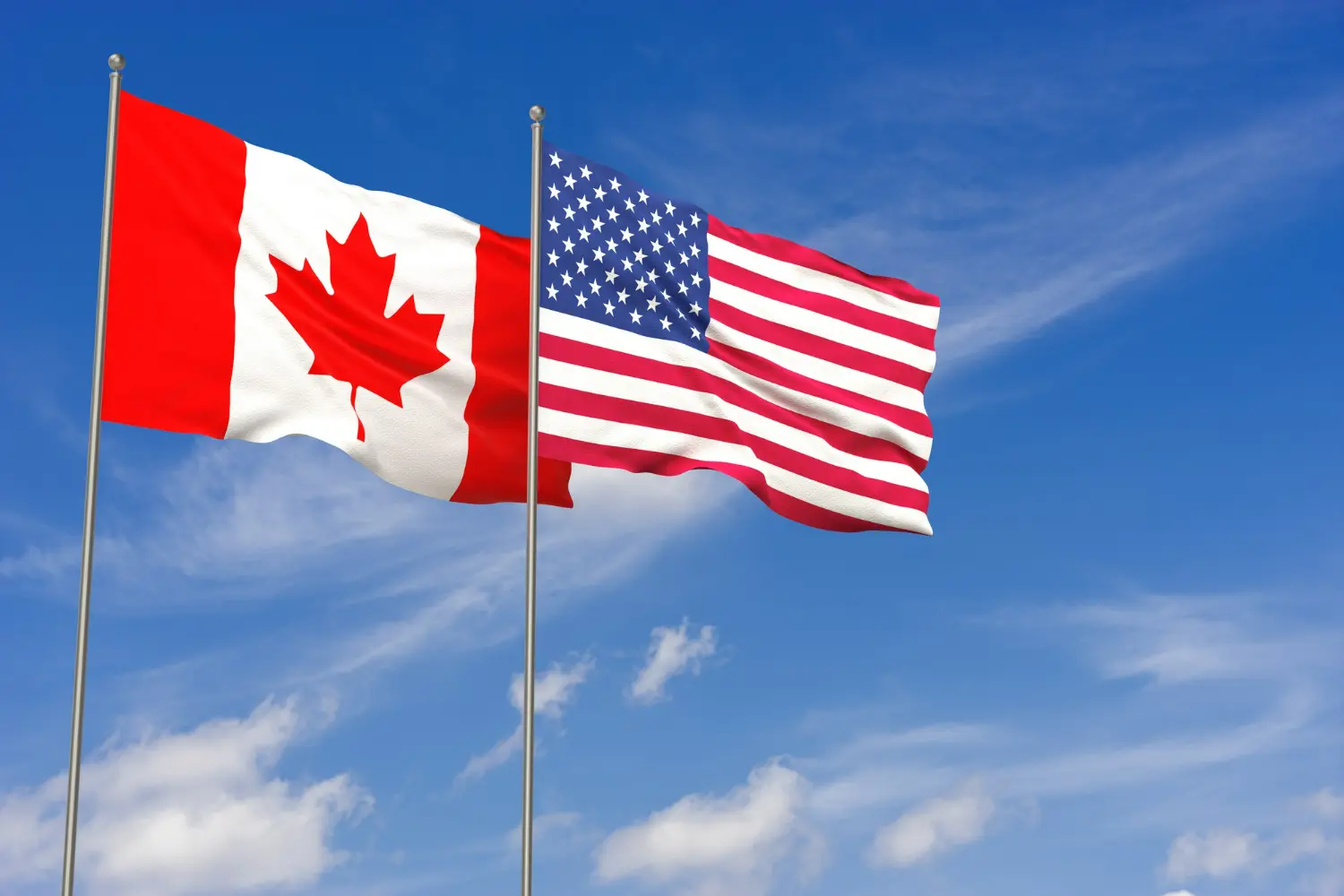Will Trade War Intensifies with New Tariff Measures – Canada & U.S?

In a significant escalation of trade tensions, Canada has announced retaliatory tariffs on $20 billion worth of U.S. imports in response to the Trump administration’s recent imposition of a 25% tariff on steel and aluminum products from all countries, effective March 12, 2025.
Table of Contents
Finance Minister Dominic LeBlanc made it clear that Canada will not back down, implementing a “dollar-for-dollar” countermeasure. The new 25% tariffs will take effect and impact key U.S. goods, including steel, aluminum, computers, sports equipment, and cast iron products. This response follows an earlier wave of countermeasures on March 4, which saw Canada imposing tariffs on $30 billion worth of U.S. goods. Despite a temporary exemption for certain products issued by President Trump on March 6, Canada remains firm in its stance.
LeBlanc emphasized the need for Canada to protect its economic interests, stating, “The U.S. administration is once again inserting disruption and disorder into an incredibly successful trading partnership and raising the costs of everyday goods for Canadian and American households alike.”
Canada Seeks to De-escalate While Standing Firm
Ontario Premier Doug Ford, a key figure in the ongoing negotiations, has taken a strategic approach by balancing assertiveness with diplomacy. On Tuesday, after a heated back-and-forth, Ford agreed to suspend the 25% tariffs on electricity exports to three U.S. states in exchange for a high-level meeting at the White House.
“The conversation tomorrow will be around lowering the temperature and focusing on the process that President Trump set up, where Secretary Lutnick has up to April 2 to determine a series of global tariff decisions,” LeBlanc explained. This agreement marks a temporary pause in one aspect of the trade war, allowing room for diplomatic discussions. However, Ford made it clear that Canada is not backing down and is keeping all options open should negotiations fail.
Global Reactions and Economic Implications
Canada’s stance has garnered international attention, with the European Union announcing its own retaliatory tariffs on $28 billion worth of U.S. goods, set to take effect in April. The impact of these escalating trade tensions is already being felt in financial markets. Aluminum premiums have reached record highs, and hot rolled coil prices are surging as industries brace for supply chain disruptions. While the U.S. administration justifies the tariffs as a means of protecting domestic manufacturing, industry experts warn that they could backfire, increasing production costs for businesses reliant on these materials, such as automotive, construction, and aerospace.
The Road Ahead: Diplomatic Talks and Economic Uncertainty
Ontario Premier Doug Ford and other Canadian officials are set to meet with U.S. Commerce Secretary Howard Lutnick in Washington on Thursday for crucial trade discussions. These talks will play a vital role in determining the future of Canada-U.S. economic relations.
Despite the temporary suspension of electricity tariffs, Canada remains firm in its response. Foreign Affairs Minister Melanie Joly reinforced this sentiment, stating, “This is much more than about our economy. It is about the future of our country. Canadians have had enough, and we are a strong country.”
As the deadline for Lutnick’s tariff decisions approaches on April 2, all eyes remain on the negotiations. The stakes are high, not just for Canada and the U.S., but for global trade stability. Businesses and consumers alike brace for potential economic consequences, including higher prices and continued market volatility.
For now, Canada is making it clear—it will not back down from protecting its economy and its future. The next few weeks will be crucial in shaping the trajectory of this trade dispute and its lasting impact on international trade dynamics.











